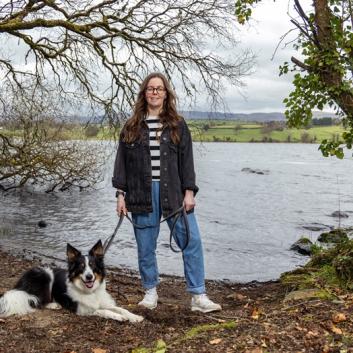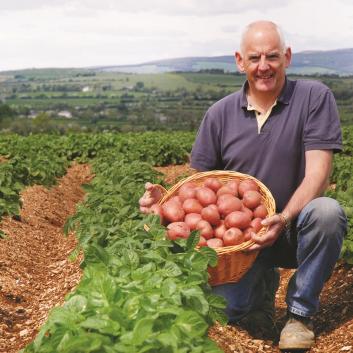How to get people involved with sustainability and keep them engaged?
Expert opinion by Joanna Mulkeen, Founder of One Step Closer
In the past years, more and more companies put efforts into managing their carbon emission and pledging to become net-zero while introducing other sustainability practices.
However, most companies and organisations have no measures of how successful their sustainability communications are in reaching and influencing their audience, and there are often no set KPIs for active audience engagement.
But this is about to change. New regulations, like the Corporate Sustainability Reporting Directive (CSRD), will require companies and organisations to map and report on their engagement efforts starting in 2024.
People trust companies and organisations more than governments, media and even NGOs to bring changes to sustainability, according to Edelman’s Trust Barometer 2023 report. It also found that climate change concerns people more than nuclear war, inflation and food shortages.
There is a growing demand amongst consumers and employees alike to align with organisations and companies and look at them as ‘partners for good’.
I created One Step Closer, a unique Sustainability Engagement Engine, to allow people to engage with organisations’ sustainability actions in an easy and fun way, immediately seeing their actions’ impact.
I work with organisations to help them extract simple sustainability stories linked to bigger commitments and design engagement campaigns that allow their audience to vote directly and influence these actions while we communicate the results and the proven impacts.

However, citizen engagement is a hard nut to crack.
One of these challenges is that consumers want organisations to take sustainability actions but often don't believe what they say.
Then there is the complexity of sustainability challenges and strategies that can make it hard to create simple messages and translate them into campaigns.
Also, some organisations are shying away from publicly discussing their sustainability agenda as they fear being accused of greenwashing and any potential backlash.
Many organisations fear that simple sustainability messages will convey an insincere sustainability commitment.
Although, we have found just the opposite to be the case, as these straightforward campaigns can help anchor complex messages in a tangible and personally relevant way.
Also, organisations are holding back because not all aspects of their operations might be perfectly sustainable.
Sustainability mastery is impressive and sometimes inspirational, but as stories, they are often presented as passive pieces of content.
Journeys, however, are an invitation to explore together and perfectly placed to tell stories about intentions, failures, commitments, sacrifice and success – celebrating milestones along the way.
Probably one of the most used tools where complexity can become a barrier in this space is sustainability reports. But honestly, who wants to read a report? Why not let your audience become a part of it?
A perfect sustainability track record absolutely should not be a starting point.
If you have already done everything, how could people get involved?
It is human nature to ‘connect’ with stories that are not finished rather than the ones that are.
We have developed the ENGAGE Model for the One Step Closer platform with a focus on community actions around sustainability:
E – EMPOWER citizens by asking them to vote and influence positive outcomes
N – in a NEUTRAL space away from marketing fluff
G – make sure it’s GREGARIOUS so people can share
A – with ACTION-BASED activity that makes a difference
G – prove it’s GENUINE by showing the impact
E – ensure that it is EMPIRICAL so you can learn every time you do anything
I believe following this logic can help take small but meaningful steps towards common goals, and I have seen them deliver results beyond expectations.
One of our campaigns for Trinity College Dublin (TCD) in Ireland aimed to raise awareness about the importance of biodiversity and ‘nature spaces’ in our cities.
We asked students, staff, and the general public to vote if TCS should rewild the iconic 400-year-old lawns on their campus in the heart of Dublin.
The campaign attracted nearly 14,000 votes, with 90 per cent in favour of choosing wildflowers. It also generated over 50 pieces of media coverage nationally and abroad.
This simple yet powerful project gave participating citizens a sense of personal ownership of these wildflower lawns and a clear emotional connection to the sustainability challenges around biodiversity.

We need to see examples of actions that work, and this is where the role of media is vital and how they report on sustainability challenges, inspiring people to regain faith that efforts and shifts in how we live are worthwhile.
Headline image: Getty images
This article is an extract from content originally published in the Circular Economy in Action special edition of the Profit with Purpose Magazine - you can read the full article and other features in the magazine.















